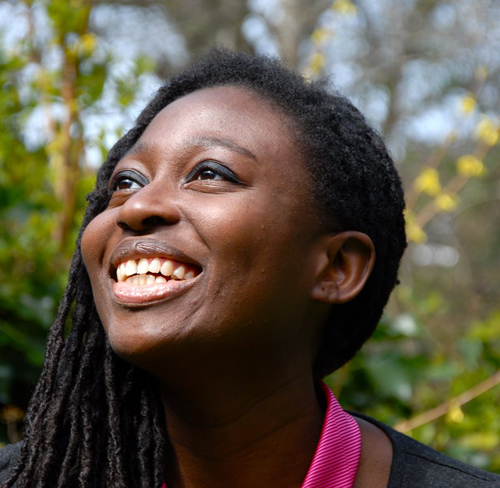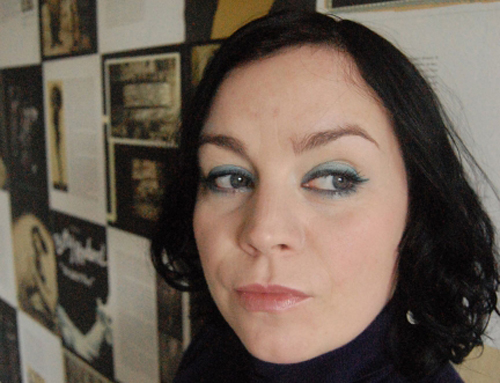Three of Granta’s Best of Young British Novelists 4 have made the shortlist for this year’s BBC National Short Story Award with BookTrust. ‘The Waken’ by Jenni Fagan, ‘The Collector’ by Benjamin Markovits and ‘If a book is locked there’s probably a good reason for that, don’t you think?’ by Helen Oyeyemi are joined by critic and novelist Will Eaves’ ‘Murmur’, and ‘The Edge of the Shoal’ by Granta Books author Cynan Jones.
Now celebrating its twelfth year, the Award is one of the most prestigious for a single short story, with the winning author receiving £15,000, and four further shortlisted authors £600 each. You can listen to the stories on the BBC Radio 4’s new short story podcast, and the full text will be available in an anthology coming from Comma Press – in the meantime, here’s a little something by each of the shortlisted authors:

Benjamin Markovits:
‘To Detroit’ is an excerpt from Benjamin Markovits’ excellent 2015 novel You Don’t Have to Live Like This, which perfectly captures America in the late oughts:
‘There’s a kind of momentum to driving on the freeway. After a while, it’s hard to come off, everything passes too quickly – the grassy verge, the trees growing up from the streets below, the exit signs and apartment blocks and office blocks and stadiums. But roads are mostly what we saw, around and below and above. I kept driving over the shadows of bridges and said out loud, the way you do for foreigners, ‘Spaghetti junction.’ But really the whole thing reminded me of those sugar-spun cages you get over fancy desserts. I imagined lifting up one of those bridges with my finger, and watching all of the other highways, and not only the highways but also the exits and avenues and boulevards, streets, roads, crescents, lanes and alleys, pulling away from the ground, because they’re all connected, and leaving a tan line across America, the color of earth, with a few worms digging around underneath, some pill bugs and dirty wet leaves.’

Cynan Jones:
Cynan Jones’ 2014 novel The Dig, the story of a grieving farmer in rural Wales, won the Jerwood Fiction Uncovered Prize and the 2015 Wales Book of the Year Fiction Prize. If you haven’t already read it (you should – it’s excellent), here’s a taster:
‘The boy’s father parked up the car and they sat seeing the dog runs and the broken machinery and the boy was momentarily stupefied by the darkness and emptiness about the place. In the car lights he could see just beyond the runs the bodies of cars like some disassembled ghost train littering the field.
The big man heard them pull up outside and saw the car lights catch and reflect on the mesh of the run and came out to them. The boy had a brief inarticulate awareness that his father shied a little when he saw the big man come from the house. He hadn’t seen that in his father before. The boy thought the man looked like some big gypsy.
The man leaned into the window and the dogs in the back came alive at this new presence and set off a yapping, which set off a yapping in the dog sheds beyond. The car was full of a deodoranty smell that got into your mouth.’

Helen Oyeyemi:
Helen Oyeyemi is another of Granta’s Best of Young British Novelists – here’s ‘Books and Roses’, one of our favourite stories from her, written for Granta 129: Fate.
‘A golden chain was fastened around her neck, and on that chain was a key. As she grew up, the lock of every door and cupboard in the monastery was tested, to no avail. She had to wait. It was both a comfort and a great frustration to Montse, this . . . what could she call it, a notion, a suggestion, a promise? This promise that somebody was coming back for her. If she’d been a white child the monks of Santa Maria de Montserrat might have given her into the care of a local family, but she was as black as the face and hands of the Virgin they adored. She was given the surname Fosc, not just because she was black, but also because her origin was obscure. And the monks set themselves the task of learning all they could about the needs of a child. More often than not they erred on the side of indulgence, and held debates on the matter of whether this extreme degree of fondness was a mortal sin or a venial one. At any rate it was the Benedictine friars who fed and clothed and carried Montse, and went through the horrors of the teething process with her, and rang the chapel bells for hours the day she spoke her first words. Neither as a girl nor as a woman did Montse ever doubt the devotion of her many fathers, and in part it was the certainty of this devotion that saw her through times at school and times down in the city when people looked at her strangely or said insulting things; the words and looks sometimes made her lower her head for a few steps along the street, but never for long. She was a daughter of the Virgin of Montserrat, and she felt instinctively and of course heretically that the Virgin herself was only a symbol of a yet greater sister-mother who was carefree and sorrowful all at once, a goddess who didn’t guide you or shield you but who went with you from place to place and added her tangible presence to your own when required.’

Will Eaves:
Will Eaves is a London-based author, journalist and former arts editor of the Times Literary Supplement. Here’s an excerpt from his 2012 novel This is Paradise:
‘Clive had been born blue, with the umbilical cord round his neck. Every day when he clambered up the stairs, her heart leapt at his restoration, the joy of knowing that he had survived and she had not been left on her own. Because that was the worst thing by far about a still-birth. Worse than the fact of it was the stillness and isolation of the room they put you in, the unmarked afterthought with a lone bulb in which you were abandoned to get on with things. And the dead two – one before Liz, another between her and Clive – had been hard deliveries, and she had screamed for hours, probably. When it was over, the nurses were never kind enough. They took the baby away, shut the door and let you have a good cry. Two days later, you were dressed and sent home with antibiotics. And you always felt you’d failed, no matter what people said, which wasn’t much. Clive had nearly died on the way out, but not quite, so he had to be lucky.’

Jenni Fagan:
Jenni Fagan is the author of two novels (The Panopticon and The Sunlight Pilgrims), and is a Granta Best of Young British Novelist. Her story Zephyrs, from Granta 123, is a story about finding hope in the wake of a natural disaster:
‘Frogs begin to hop along the road, migrating away from a fire that must, realistically, be miles away. It must be miles away. It will burn out by morning. Cael scoops up a frog. Its throat thrums; a clear membrane slides down across the round eyes; it pulses in his cupped hands like a heart. Keep walking on, up through the back lanes looking for the sign. The stars are so clear and the moon is full and each crater stands out starkly – up here it looks so much more like a planet.’







